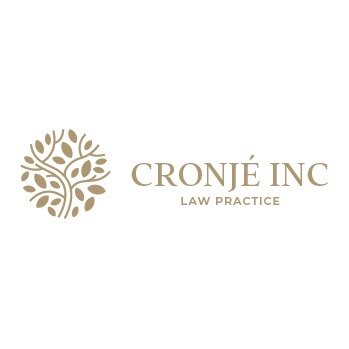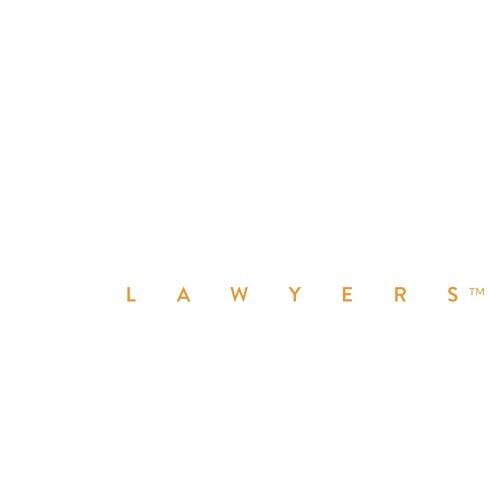Best Renewable & Alternative Energy Lawyers in Namibia
Share your needs with us, get contacted by law firms.
Free. Takes 2 min.
Or refine your search by selecting a city:
List of the best lawyers in Namibia
About Renewable & Alternative Energy Law in Namibia
Namibia is one of Africa’s leading countries in terms of renewable energy potential. With its abundant sunshine, strong winds, and vast open spaces, the country is making significant strides to adopt renewable and alternative sources of energy such as solar, wind, and biomass. The Namibian government has initiated major projects and legal frameworks to encourage the development of renewable energy and reduce reliance on imported electricity and fossil fuels. Renewable and alternative energy law in Namibia covers a range of legal matters, including project development, licensing, land use, environmental regulations, and cross-border energy trade.
Why You May Need a Lawyer
If you are considering investing in, developing, or utilizing renewable or alternative energy in Namibia, there are several instances where legal expertise can be invaluable:
- Negotiating and drafting power purchase agreements
- Understanding and complying with licensing and regulatory requirements
- Securing permits for land use, environmental clearance, and water rights
- Structuring joint ventures or partnerships with Namibian entities
- Navigating government incentives, grants, and funding programs
- Resolving disputes relating to contracts or property rights
- Handling import and export of energy and related equipment
- Protecting intellectual property for innovative technologies
- Ensuring tax compliance and understanding investment incentives
- Advising on participation in government or private-sector energy projects
Hiring a knowledgeable lawyer helps you avoid costly mistakes, comply with complex local laws, and secure the success of your energy projects.
Local Laws Overview
Namibia's legal framework for renewable and alternative energy is governed by several key laws and policies:
- Electricity Act 4 of 2007: Regulates the generation, transmission, distribution, supply, and import/export of electricity. It empowers the Electricity Control Board (ECB) to oversee licensing and quality standards.
- Renewable Energy Feed-in Tariff (REFIT) program: Provides guaranteed pricing for renewable energy producers selling to the national grid in certain project categories.
- Environmental Management Act 7 of 2007: Imposes obligations for acquiring Environmental Clearance Certificates for energy projects to ensure protection of natural resources and public health.
- National Renewable Energy Policy and Energy White Paper: These documents set out goals for increasing renewable energy contribution and detail incentives, project guidelines, and required government engagement.
- Land tenure and usage regulations: Energy projects may require permission or leases for land use, particularly when operating on communal or state land.
- Import and customs laws: Relevant for bringing renewable energy equipment into Namibia, subject to applicable duties and technical conformity checks.
Each renewable or alternative energy project must be assessed individually for compliance with all relevant national and sometimes regional rules.
Frequently Asked Questions
What types of renewable energy are commonly used in Namibia?
In Namibia, the most common sources of renewable energy are solar (photovoltaic and thermal), wind, and to a lesser extent, biomass and hydroelectricity from small-scale projects.
What licenses are required to operate a renewable energy project?
Project developers must obtain generation, transmission, and, if applicable, distribution licenses from the Electricity Control Board. Additionally, environmental clearance is required from the Environmental Commissioner.
How long does it take to get approval for a renewable energy project?
The approval process varies depending on the type and scale of your project, but it generally involves several months for reviews, especially for environmental assessments and regulatory licensing.
What are the key government incentives for renewable energy investment?
Namibia offers incentives such as feed-in tariffs for small power producers, potential tax incentives, import duty concessions on equipment, and governmental support for pilot and rural electrification projects.
Is it possible for a foreign entity to own and operate a renewable energy facility?
Yes, foreign entities can invest in and operate such projects, subject to Namibian company registration requirements and compliance with local laws. Partnerships with Namibian stakeholders are often encouraged.
Are Environmental Impact Assessments mandatory?
Yes, most renewable energy developments require an Environmental Impact Assessment and an Environmental Clearance Certificate before construction or operation can commence.
Can individuals or businesses sell electricity back to the grid?
Some programs, such as the net metering scheme and renewable energy feed-in tariffs, allow small producers to supply surplus electricity to the national grid, provided proper agreements and licenses are in place.
What happens if environmental or licensing regulations are not followed?
Non-compliance can result in project delays, fines, revocation of licenses, or legal proceedings from government authorities or affected communities.
How are disputes in renewable energy projects resolved?
Disputes can be resolved through negotiation, mediation, arbitration, or litigation in Namibian courts. Contractual agreements often specify preferred dispute resolution mechanisms.
Who are the main regulatory bodies for renewable energy in Namibia?
The Electricity Control Board (ECB) regulates the electricity sector, while the Ministry of Mines and Energy and the Environmental Commissioner are also key stakeholders in project oversight.
Additional Resources
If you require further information or support, these Namibian institutions and organizations may be helpful:
- Electricity Control Board (ECB)
- Ministry of Mines and Energy
- Environmental Commissioner, Ministry of Environment, Forestry and Tourism
- Namibia Energy Institute
- Namibia Investment Promotion and Development Board
- Chamber of Mines of Namibia
- Namibia Renewable Energy Industry Association (REIAoN)
- Relevant local law firms with energy law departments
- Namibia Statistics Agency (for data and reports)
Next Steps
If you are considering a venture or facing legal questions related to renewable or alternative energy in Namibia, it is wise to consult with a lawyer who specializes in this field. Begin by gathering all relevant documents regarding your project or interests. Research and contact Namibian law firms or attorneys who have experience in energy law. Prepare a list of questions and concerns before your consultation to maximize the value of professional advice. A lawyer will guide you in navigating regulatory requirements, securing permits, drafting contracts, connecting with relevant authorities, and ensuring compliance with Namibian laws. Early legal assistance can save time, protect your investment, and help your renewable energy initiative succeed.
Lawzana helps you find the best lawyers and law firms in Namibia through a curated and pre-screened list of qualified legal professionals. Our platform offers rankings and detailed profiles of attorneys and law firms, allowing you to compare based on practice areas, including Renewable & Alternative Energy, experience, and client feedback.
Each profile includes a description of the firm's areas of practice, client reviews, team members and partners, year of establishment, spoken languages, office locations, contact information, social media presence, and any published articles or resources. Most firms on our platform speak English and are experienced in both local and international legal matters.
Get a quote from top-rated law firms in Namibia — quickly, securely, and without unnecessary hassle.
Disclaimer:
The information provided on this page is for general informational purposes only and does not constitute legal advice. While we strive to ensure the accuracy and relevance of the content, legal information may change over time, and interpretations of the law can vary. You should always consult with a qualified legal professional for advice specific to your situation.
We disclaim all liability for actions taken or not taken based on the content of this page. If you believe any information is incorrect or outdated, please contact us, and we will review and update it where appropriate.
Browse renewable & alternative energy law firms by city in Namibia
Refine your search by selecting a city.















